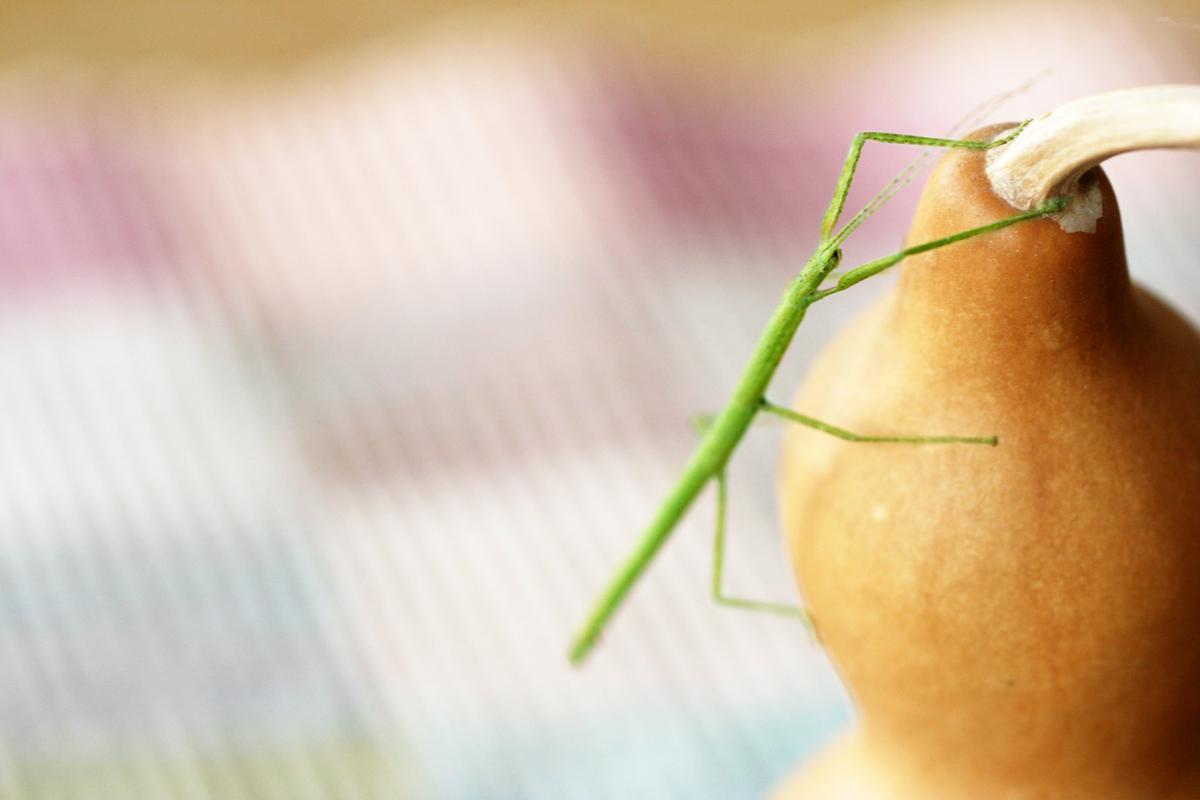Today's Moment of Science features walking stick insects. You probably know them for their curious appearance. They resemble the twigs of the plants they feed on. Their bodies are shaped and colored just like sticks. In fact, one of the defense mechanisms of these insects, crypsis, involves their taking their resemblance to twigs as far as it will go. The insects straighten their limbs and antennas out along the length of their bodies, so that all a predator sees is a twig, not a scrumptious insect meal. The insect will even rock, so that it appears to be swaying in the breeze.
There's more to these strange looking creatures than meets the eye though. For instance, did you know that they can regenerate injured or lost limbs? If a walking stick insect isn't yet mature, and thus hasn't grown out of molting, it can regenerate a lost limb when it next molts. The new limb may be smaller and less well formed, but better than no limb at all.
If you're still not convinced that walking stick insects are pretty interesting little critters, how about this: walking stick insects are also parthenogenetic. This means that females can reproduce successfully without males. That's right, no males needed. Without a father, the resulting offspring will all be female. There are male walking sticks and they do sometimes participate in reproduction, but they're not necessary to continue the species. Parthenogenesis is fairly common among sap-feeder insects, including aphids.
Finally, though their large size may make them seem intimidating, walking sticks are benign. In fact, for some people, walking sticks are beloved pets.










